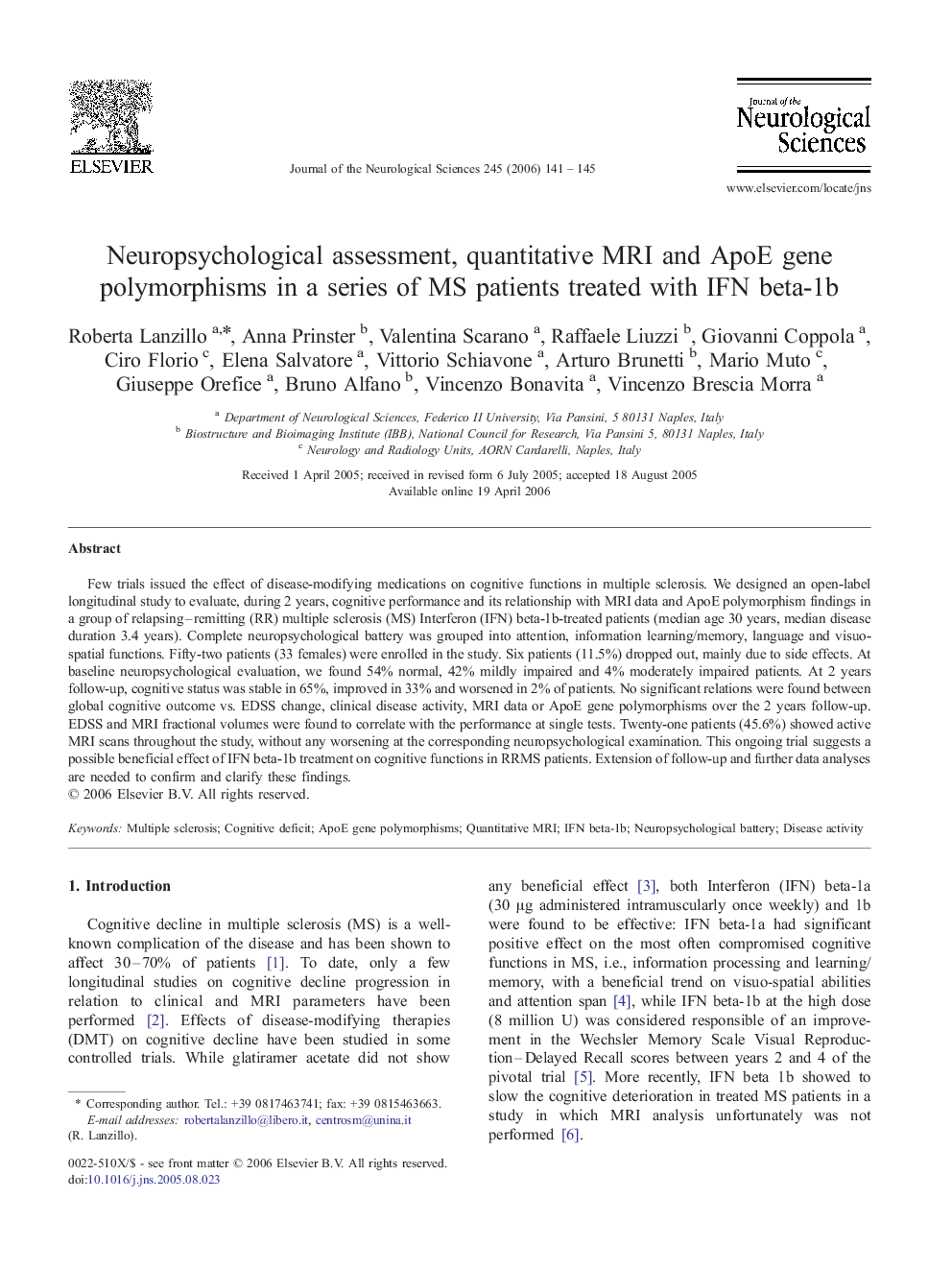| Article ID | Journal | Published Year | Pages | File Type |
|---|---|---|---|---|
| 1916871 | Journal of the Neurological Sciences | 2006 | 5 Pages |
Abstract
Few trials issued the effect of disease-modifying medications on cognitive functions in multiple sclerosis. We designed an open-label longitudinal study to evaluate, during 2 years, cognitive performance and its relationship with MRI data and ApoE polymorphism findings in a group of relapsing-remitting (RR) multiple sclerosis (MS) Interferon (IFN) beta-1b-treated patients (median age 30 years, median disease duration 3.4 years). Complete neuropsychological battery was grouped into attention, information learning/memory, language and visuo-spatial functions. Fifty-two patients (33 females) were enrolled in the study. Six patients (11.5%) dropped out, mainly due to side effects. At baseline neuropsychological evaluation, we found 54% normal, 42% mildly impaired and 4% moderately impaired patients. At 2 years follow-up, cognitive status was stable in 65%, improved in 33% and worsened in 2% of patients. No significant relations were found between global cognitive outcome vs. EDSS change, clinical disease activity, MRI data or ApoE gene polymorphisms over the 2 years follow-up. EDSS and MRI fractional volumes were found to correlate with the performance at single tests. Twenty-one patients (45.6%) showed active MRI scans throughout the study, without any worsening at the corresponding neuropsychological examination. This ongoing trial suggests a possible beneficial effect of IFN beta-1b treatment on cognitive functions in RRMS patients. Extension of follow-up and further data analyses are needed to confirm and clarify these findings.
Related Topics
Life Sciences
Biochemistry, Genetics and Molecular Biology
Ageing
Authors
Roberta Lanzillo, Anna Prinster, Valentina Scarano, Raffaele Liuzzi, Giovanni Coppola, Ciro Florio, Elena Salvatore, Vittorio Schiavone, Arturo Brunetti, Mario Muto, Giuseppe Orefice, Bruno Alfano, Vincenzo Bonavita, Vincenzo Brescia Morra,
